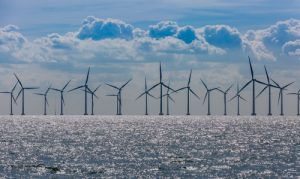
Bipartisan legislation introduced by U.S. Sen. Bill Cassidy (R-LA) to bolster a federal revenue sharing program received consideration on Oct. 19 by the U.S. Senate Energy and Natural Resources Subcommittee on Public Lands, Forests, and Mining.
The subcommittee held a hearing to discuss the Reinvesting in Shoreline Economies and Ecosystems (RISEE) Act of 2021, S. 2130, which Sen. Cassidy cosponsored in June with bill sponsor U.S. Sen. Sheldon Whitehouse (D-RI).
Specifically, S. 2130 would amend the Gulf of Mexico Energy Security Act (GOMESA), one of two federal revenue sharing programs that support the Outer Continental Shelf (OCS) in United States waters, to establish several dedicated streams of funding for coastal infrastructure and resiliency in order to protect vulnerable communities and businesses most impacted by sea level rise and coastal erosion.
“In the last two years, Louisiana has been hit by several hurricanes and tropical storms. These storms exacerbate a land loss crisis that threatens ecosystems, communities, local economies, ways of life, and increases the risk of flooding,” Sen. Cassidy said. “Coastal communities use the resources from offshore revenue sharing to restore our coastlines.”
Current law requires that all revenues generated from offshore wind leases and production beyond state waters be deposited in the U.S. Treasury. The RISEE Act would send 50 percent of offshore wind revenue to adjacent states where offshore wind farms are developed, according to a bill summary provided by Sen. Cassidy’s office.
If enacted, S. 2130 also would allow for more equitable resource sharing between states, the federal government and conservation programs, among other provisions, the summary says.
During Tuesday’s subcommittee hearing, testimony was presented demonstrating widespread support from national, state and local organizations.
For instance, Sen. Cassidy pointed out the need to amend GOMESA, citing data from the U.S. Department of the Interior showing that from fiscal year 2016 to FY 2020, the department collected almost $21 billion in offshore receipts from royalties, rents, bonus bids, inspection fees and other revenues.
But during that time, “$757 million was shared with Gulf States, which is just 3.6 percent of offshore revenues generated,” said Sen. Cassidy. “This is not equitable, certainly not in comparison with what states get for onshore revenue, and does not acknowledge the national significance of the Gulf region meeting the nation’s energy needs.”
The proposed legislation would fix this inequity and improves the existing revenue sharing program for states producing offshore energy revenue, the senator said, and would remove an existing cap authorized in GOMESA on the amount of dollars shared among four Gulf States, as well as the cap on funds available for the Land and Water Conservation Fund’s stateside assistance program.
“It increases the percentage of offshore revenue shared by the Gulf States. It protects offshore revenue from sequestration and makes additional leases eligible for revenue sharing in the future,” Sen. Cassidy testified. “And the reason I think Senator Whitehouse is in favor, in part, the bill also creates a fourth GOMESA equity to provide immediate funding to the National Ocean’s and Coastal Security Fund, and as previously mentioned, creates a new national revenue sharing program for states hosting offshore wind energy generation.”
S. 2130 is also supported by numerous organization, including the Congressional Sportsmen’s Foundation, the Environmental Defense Fund, the National Audubon Society, the American Sportfishing Association, Citizens for Responsible Energy Solutions, the American Clean Power Association, the National Wildlife Federation, The Nature Conservancy, and the National Recreation and Park Association, among many others.



